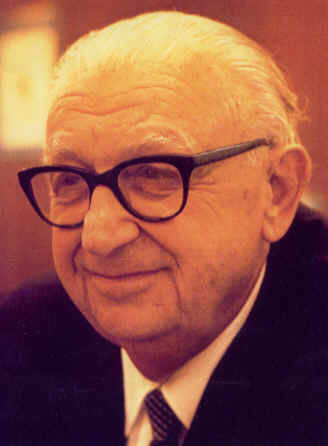Karl Freund (Karl W. Freund)

Karl Freund was born to Jewish parents in Dvůr Králové (Königinhof), Bohemia. His career began in 1905 when, at age 15, he was hired as an assistant projectionist for a film company in Berlin, where his family had moved in 1901. Freund worked as a cinematographer on over 100 films, including the German Expressionist films The Golem (1920), The Last Laugh (1924) and Metropolis (1927). Freund co-wrote, and was cinematographer on, Berlin: Symphony of a Metropolis (1927), directed by Walter Ruttmann. Karl Freund emigrated to the United States in 1929, where he continued to shoot well-remembered films such as Dracula (1931) and Key Largo (1948). Notably, his work on Dracula came under a mostly disorganized shoot, with the usually meticulous director Tod Browning leaving cinematographer Freund to take over during much of filming, making Freund something of an uncredited director on the film. He won an Academy Award for Best Cinematography for The Good Earth (1937). Between 1921 and 1935, Freund directed 10 films, of which the best known are probably his two credited horror films, The Mummy (1932) starring Boris Karloff, and his last film as director, Mad Love (1935) starring Peter Lorre. Freund’s only known film as an actor is Carl Theodor Dreyer’s Michael (1924) in which he appears as a sycophantic art dealer who saves the tobacco ashes dropped by a famous painter.
At the beginning of the 1950s, he was persuaded by Desi Arnaz at Desilu to be the cinematographer for the television series I Love Lucy from 1951. Critics have credited Freund for the show’s lustrous black and white cinematography, but more importantly, Freund designed the “flat lighting” system for shooting sitcoms that is still in use today. This system covers the set in light, thus eliminating shadows and allowing the use of three moving cameras without having to modify the lighting between shots. While Freund did not invent the three-camera shooting system, he did perfect it for use with film cameras in front of a live audience. Karl Freund and his production team also worked on other sitcoms produced at/through Desilu, such as Our Miss Brooks. In 1937, he visited Germany to bring to the United States his only daughter, Gerda Maria Freund, saving her from almost certain death in the concentration camps. His ex-wife, Susette Freund (née Liepmannssohn), remained in Germany, where she was interned at the Ravensbrück concentration camp.
Born
- January, 16, 1890
- Dvůr Králové nad Labem, Czech Republic
Died
- May, 03, 1969
- USA
- Santa Monica, California
Cemetery
- Mount Sinai Memorial Park
- Los Angeles, California
- USA



